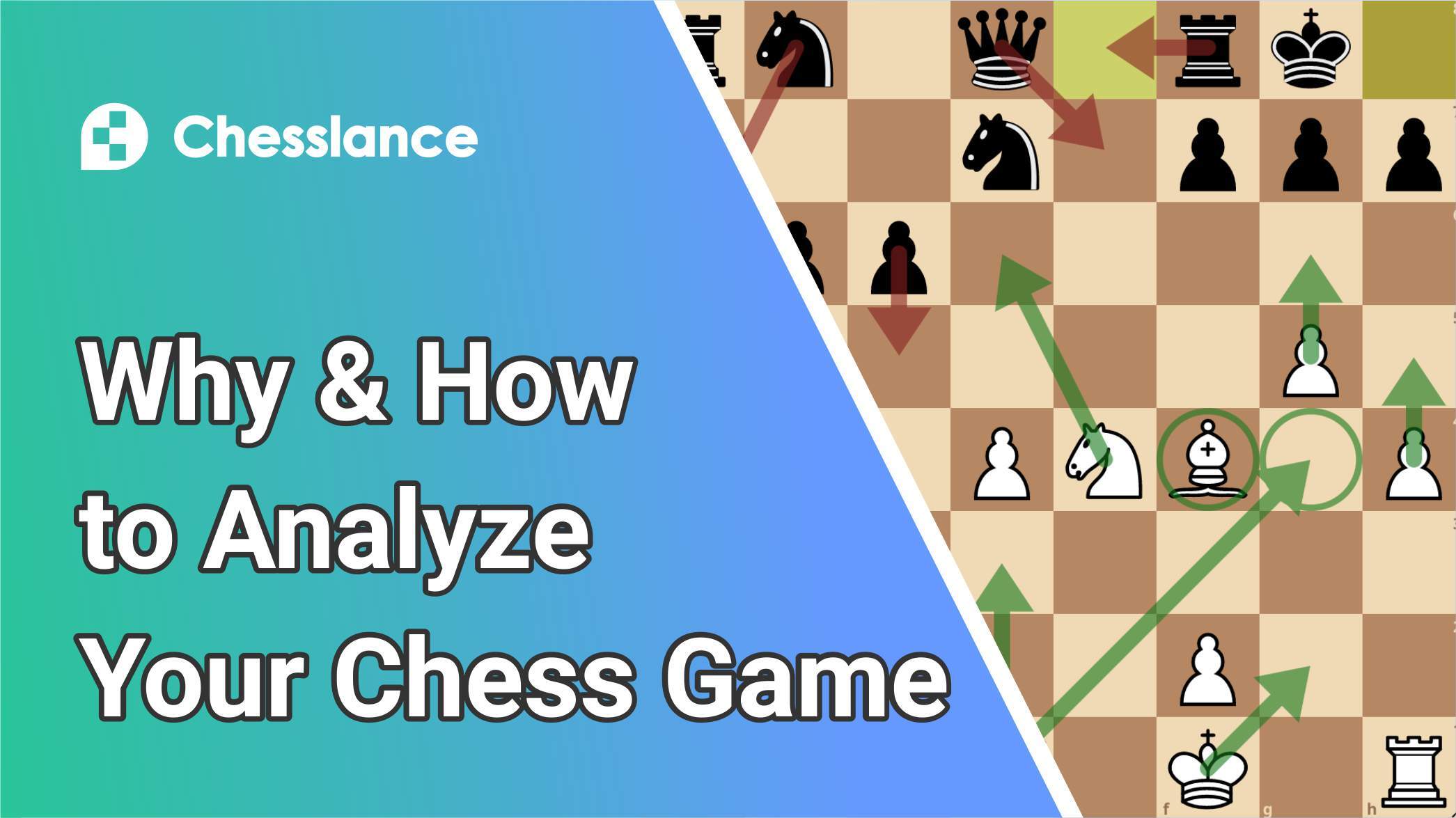
Why you should analyze your chess game?
In simple words, your practice is incomplete without analysis. Analyzing your own game is the best way to improve your performance. As a matter of fact, It would help you to identify the areas of improvement, even in winning games. So, you should analyze your chess game. All big players do this, e.g. Garry Kasparov suggests analyzing your winning games also. However, doing so can be a tricky task, especially if the player doesn’t have a trainer to help.
How to Analyze Your Chess Game?
When reviewing games, there are many factors that players should check. We are going to talk about some significantly important factors in this article:
Move type (Static and dynamic)
Check if you played unnecessary dynamic or static. Did your moves meet the requirements?
This process forces you to ask questions about the actual need for any movement or variation played. Is their demand something that could make Move better, or is it something that would be a good idea in the future?
The decision to carry out your plans quickly or slowly depends on the static or dynamic position. You can look up what you missed, where you should play slow or fast. And finally, draw your conclusions.
POST (Plan, Objectives, Strategies, and Tactics) Analysis:
POST is a robust chess analysis framework — considered one of the best techniques for understanding a player’s mistakes. This technique includes conducting a detailed, complete game analysis of the player.
Plan: What was the plan that you missed?
Objectives: What were the key goals that help achieve a good position?
Strategies: What were the strategic options available for achieving a good position?
Tactics: Missing tactics are seen to be a common reason to lose. Must go through it.
SWOT Analysis:
One of the techniques in chess, SWOT identifies a player’s strengths and weaknesses, missed opportunities and threats in their games. Knowledge helps players understand better to improve. Basically the four elements of SWOT are:
Strengths: Things you are good at.
Weaknesses: You are average or bad at.
Opportunities: Where the opponent did mistakes and where the opponent gave you the opportunity
Threats: Threats are great even if the opponent can defend them. It gives you tempo move, counterattack, or development. Also, it psychologically puts your opponent in defensive mode. Sometimes if you find some back-to-back threat moves it gets converted into a good winning combination.
Whys:
Once you went through the above things, it is time to find out why you missed it and which area you should start studying now
Issue: The player should note down each game issue – why he lost. So, a noted loss will pinpoint the area in which the player should work. So basically, the player will be aware in the next game. For e.g.
Why? Wrong move or blunder played.
Why? Planning, strategy missed
Why? Because insufficient time, time pressure.
Why? Missed tactics, combination
Why? Opening lines went wrong
Calculation Tree Analysis:
Undoubtedly it is the best time to develop your calculation techniques. Calculate variations as if you were in the same position again. This way you create a tree of variations or whatever technique you use to calculate and write down your calculations.
Computer’s role in chess game analysis:
For a lot of players, a computer is the only option to get the best move from any position. Here we can divide computer analysis use into three types.
Full use: Player only put his game in the engine and checks out the full game with computer suggestions. I think this can be used only at the highest level if the player needs deep analysis and the best moves. Computers can’t show you positional ideas or plannings but only calculations. However, lower-level players also can use it if they have less time for analysis.
Zero use: It is not suggested to not take any help from the computer because, as some positions are quite tricky. If you don’t use it, sometimes you will not even know what you missed.
Semi Use: This is the most recommended type for all levels. First, do your analysis, and then check it with the computer.
Conclusion
Of course, this article is just the gateway to this topic. Read, try to apply these methods, then draw your own conclusions. You can even create your own analysis method! But always remember to analyze your games: It’s an essential step in a player’s evolution.